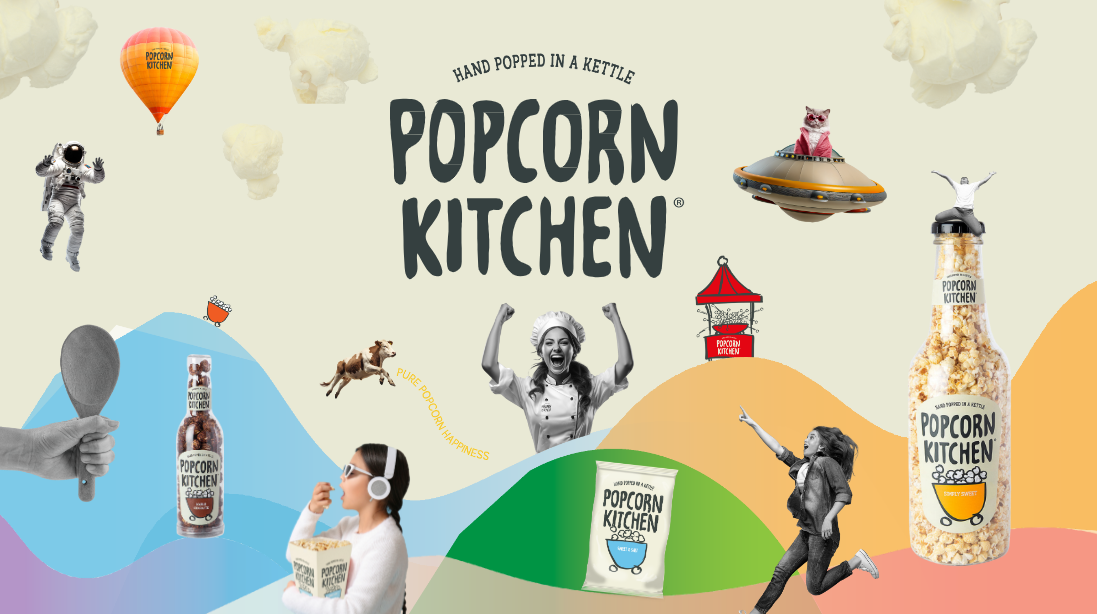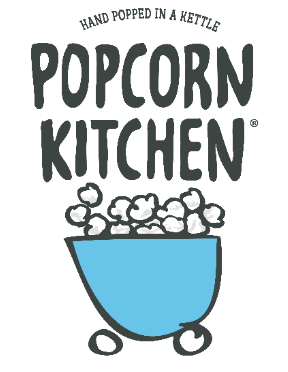



Popcorn KItchen Ltd

Buckinghamshire, United Kingdom
May 2024
Food products
Wholesale/Retail
United Kingdom
Popcorn Kitchen is no gourmet snack fly-by-night! We’ve been treading the boards making sublime, best-in-class popcorn since 2012, when we first made our name on the Surrey food festival circuit, selling ‘freshly popped’ popcorn from a mobile popcorn kettle, which explains our simple yet instantly recognisable brand logo. Back then it was our Sweet & Salt recipe (believe you me that was cutting edge back in 2012) that first got tongues wagging and resulted in countless requests for a British-made bagged product that could be sold up and down the land. Nine years down the line and the ‘pure popcorn happiness’ baton rests with Louise who has expanded the Popcorn Kitchen range to a dozen-or-so gourmet recipes and established an abundance of new fine snacking occasions that cover every imaginable ‘permissible snacking’ occasion from gifting and sharing bags to perfectly proportioned, me-time treat packs.
Overall B Impact Score
Governance 19.6
Governance evaluates a company's overall mission, engagement around its social/environmental impact, ethics, and transparency. This section also evaluates the ability of a company to protect their mission and formally consider stakeholders in decision making through their corporate structure (e.g. benefit corporation) or corporate governing documents.
What is this? A company with an Impact Business Model is intentionally designed to create a specific positive outcome for one of its stakeholders - such as workers, community, environment, or customers.
Governance 19.6
Governance evaluates a company's overall mission, engagement around its social/environmental impact, ethics, and transparency. This section also evaluates the ability of a company to protect their mission and formally consider stakeholders in decision making through their corporate structure (e.g. benefit corporation) or corporate governing documents.
What is this? A company with an Impact Business Model is intentionally designed to create a specific positive outcome for one of its stakeholders - such as workers, community, environment, or customers.
Community 46.8
Community evaluates a company’s engagement with and impact on the communities in which it operates, hires from, and sources from. Topics include diversity, equity & inclusion, economic impact, civic engagement, charitable giving, and supply chain management. In addition, this section recognizes business models that are designed to address specific community-oriented problems, such as poverty alleviation through fair trade sourcing or distribution via microenterprises, producer cooperative models, locally focused economic development, and formal charitable giving commitments.
Environment 17.4
Environment evaluates a company’s overall environmental management practices as well as its impact on the air, climate, water, land, and biodiversity. This includes the direct impact of a company’s operations and, when applicable its supply chain and distribution channels. This section also recognizes companies with environmentally innovative production processes and those that sell products or services that have a positive environmental impact. Some examples might include products and services that create renewable energy, reduce consumption or waste, conserve land or wildlife, provide less toxic alternatives to the market, or educate people about environmental problems.
Customers 4.5
Customers evaluates a company’s stewardship of its customers through the quality of its products and services, ethical marketing, data privacy and security, and feedback channels. In addition, this section recognizes products or services that are designed to address a particular social problem for or through its customers, such as health or educational products, arts & media products, serving underserved customers/clients, and services that improve the social impact of other businesses or organizations.